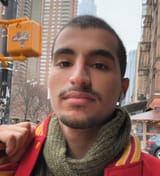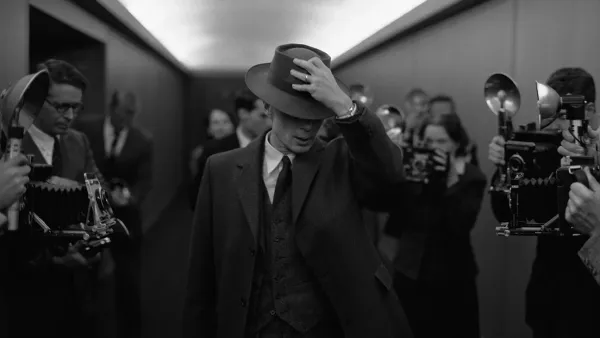Universal Language: Time is an Unforgiving but Familiar Winter

Read more of Michel’s amazing work here.

I feel that a lot gets lost when we compare film styles, even when they're applicable, and other ready-at-hand modes of descriptions fail us. It's easy to proclaim the next Vertigo in Decision to Leave, the next socially conscious Get Out, new Scorceses and Vardas and Wes Andersons. And in the case of Universal Language, I see that name tossed, Abbas Kiarostami and Jacques Tati (I was personally reminded of Weston Razooli's Riddle of Fire with its child protagonists and the whimsical subtitles).
Yet, often this is at the cost of eclipsing the unique identity a film can build through those influences and, for this especially, at outlining the defiant ideas it has on kindness and heartache in the space between spaces, between home and the Tim Hortons parking lot, between Tehran and Winnipeg.
But it makes sense - after all, Universal Language is a hard film to describe with words and not your own eyeballs. Directed by Matthew Rankin from a screenplay by Rankin, Pirouz Nemati, and Ila Firouzabadi, the film splits into 4 cardinal directions interspersed within the idiosyncratic flavors of Canada's Iranian diaspora, their daily normal, their humdrum hustles and strange regulars. Two sisters on a quest to dig money out from the ice. A humble tour guide leading an increasingly irate group to the humble wonders of the Winnipeggian winterfrost. A Kleenex emporium. A boy's lost eyeglasses. A turkey on the bus. A man home to see his estranged mother. Through it, each moves in silence through the other's, a snapshot of the wider tapestry of our lives that we weave together; it's a small world after all, and here the ineffable feeling of it is captured on celluloid.
The film accomplishes this through serenely unassuming compositions—the geography of Winnipeg and its brutalist architecture configured into a wonderland of deep creativity and cultural specificity. Rankin occupies long stretches of time with his framing, gorgeously textured 16mm print, vistas comically tableau’d with white snow and Farsi murals and storefronts, peppered with Quebecois french-isms. There's a Groucho Marx sight gag that had this reviewer howling, a couch television commercial that had the rest of my audience nearly doubled over with laughter. This is a funny film. Universal Language's commitment to absurdity is maybe its greatest asset - it's the undercurrent behind its best visual tricks, and how it primes the audience when the film gets to the apex of its surrealism: in a closed loop, behind the humor and turkey chortled glee, is the misery of what we leave of ourselves when we leave home.
The topic of cinematic influence becomes very interesting here; where the Iranian New Wave to which Rankin and co. are so indebted to adhered to realism to commentate on the absurd strictures of Iran's very militant policies, Rankin switches tacks through facsimile and artifice to ground his film within the distinct, personal culture of the Irani-Canadian, his culture and the world he grew in and around. Space is memory, memory is a city, a people, a home. In the film's most devastating storyline the director plays himself adrift on the way to reconnecting with his ailing mother, and in her, the culture he's out of step with; she can't recognize him, and by the end he can't reconcile himself either.
Universal Language celebrates all that led to it, a product of cultures cleaved and sewn back together, but it's also a lament, an elegy for the regrets place holds onto as memory.




